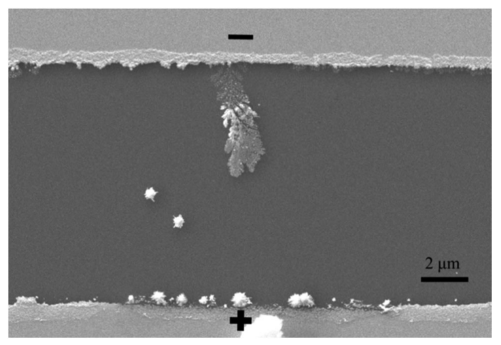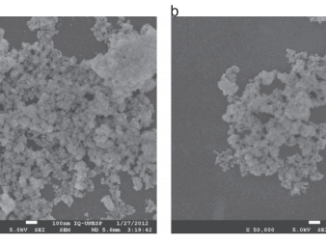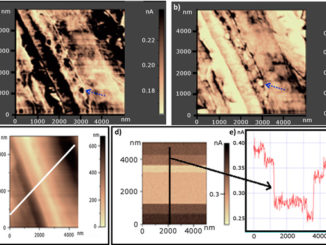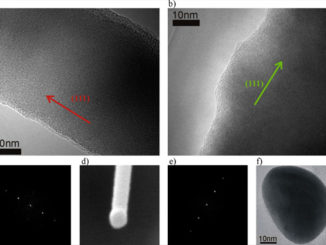
Resistive switching controlled by the hydration level in thin films of the biopigment eumelanin
Abstract: Melanins are biopigments ubiquitous in flora and fauna, exhibiting a range of interesting functional properties such as UV-Vis photoprotection, thermoregulation, hydration-dependent electrical conduction and metal chelation. In the human body, melanins can be found in the skin, hair, middle ear, retina and heart. The metal chelation properties of neuromelanin, a subclass of melanins found in the dopaminergic neurons of the brain, may be involved in Parkinson’s disease. Considering synthetic and natural (from the ink sac of the cuttlefish) thin films of eumelanin, the subclass of melanins most investigated by materials scientists, we report on two types of resistive switching (standard and hybrid), with different ON/OFF ratios, observed in planar gold/eumelanin/gold structures. The resistive switching process, based on the formation of conductive filaments, was studied by means of transient electrical measurements, scanning electron microscopy, atomic force microscopy and time of flight-secondary ion mass spectrometry. We observed an extended correlation among the factors affecting the two different types of switch: primarily the eumelanin’s hydration level as well as the presence of chelating groups in the eumelanin molecular structure and the electrical bias. This work contributes to the development of environmentally benign organic resistive switching devices, namely electrochemical metallization memory cells making use of the biocompatible, biodegradable and abundant eumelanin biopigment as the ion conductive layer.
Author(s): Di Mauro, E; Carpentier, O; Sanchez, SIY; Ignoumba, NI; Lalancette-Jean, M; Lefebvre, J; Zhang, S; Graeff, CFO; Cicoira, F; Santato, C
JOURNAL OF MATERIALS CHEMISTRY C
Volume: 4 Pages: 9544-9553 Published: 2016
PDF: Resistive switching controlled by the hydration level in thin films of the biopigment eumelanin
DOI: 10.1039/c6tc02793h




